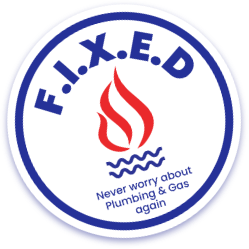Most people don’t think much about their plumbing—until it starts making strange noises. If your drains are gurgling, it’s more than just an odd sound; it’s an early warning sign of a potential plumbing disaster. Ignoring this could lead to serious blockages, slow drainage, unpleasant odours, and even costly repairs.
So, why is your drain making that gurgling sound, and what should you do about it? Let’s break it down.
Gurgling drains occur when air gets trapped in your plumbing system and is forced through the water in your pipes. This is often a sign of a problem within your drainage or ventilation system. The most common causes include:
One of the leading reasons for gurgling drains is a developing blockage. When debris like grease, food scraps, hair, or soap scum builds up in your pipes, it narrows the passage for water. This restriction creates negative pressure, forcing air bubbles to escape through your drains, resulting in that characteristic gurgling noise.
Common culprits of blocked drains in Brisbane homes:
Your plumbing system relies on vent pipes to regulate air pressure and allow sewer gases to escape safely. If a vent pipe becomes blocked—usually by leaves, dirt, bird nests, or debris—it prevents air from flowing properly, causing drains to gurgle as trapped air tries to escape through water seals in your pipes.
If multiple drains in your home are gurgling at the same time, the issue might be in your main sewer line. Tree roots are a common problem in Brisbane, as they can invade underground sewer pipes, causing blockages and damage. A clogged sewer line can result in slow drainage, sewage backups, and significant plumbing issues.
If you live in an older home or have recently had plumbing work done, gurgling drains might indicate a design flaw. Incorrect pipe slopes, poor venting, or improperly sized pipes can create negative pressure, leading to recurring gurgling sounds.
A gurgling drain isn’t just a minor inconvenience—it’s a warning sign of bigger plumbing issues. If left unaddressed, you could be facing:
Now that you know what’s causing the gurgling sound, what can you do to fix it?
A standard household plunger can help dislodge minor blockages. Fill the sink or shower with a little water and plunge vigorously to create suction that may free trapped debris.
If you suspect a vent pipe blockage, check the vent opening on your roof for debris. If you’re unsure or unable to access the roof safely, it’s best to call a plumber.
A drain snake or auger can help remove hair and other debris from partially blocked pipes. Feed the snake down the drain and twist to break up clogs.
Many store-bought drain cleaners contain harsh chemicals that can corrode your pipes over time. Instead, opt for enzyme-based cleaners that break down organic matter naturally.
If the gurgling persists or multiple drains are affected, it’s time to call in a professional. A licensed plumber can inspect your system using advanced tools like drain cameras and hydro jetting to clear blockages effectively.
Prevention is always better (and cheaper) than repairs. Here’s how to keep your drains running smoothly:
If your drains gurgle occasionally, it may be a minor issue you can fix yourself. However, if you notice any of the following, call a plumber immediately:
These signs indicate a serious blockage or main sewer line issue that needs professional attention.
Gurgling drains are more than just an annoying sound—they’re a clear warning sign of a potential plumbing issue. Whether it’s a partial blockage, a venting problem, or a tree root invasion, addressing the problem early can save you time, money, and stress.
If you’re dealing with persistent gurgling drains, don’t wait for a full blockage. Taking action now can prevent costly repairs and keep your plumbing system running smoothly.
